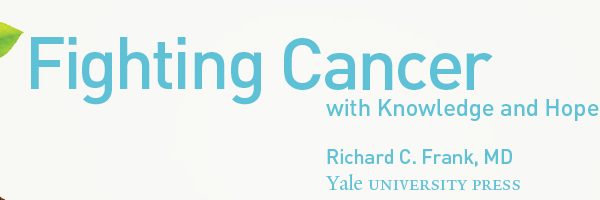When Time Is Short: Who Can Tell? Who Should Know?
Dr. Richard Frank—
The most precious things in life is life itself, good health and the happiness and well-being of our loved ones. When a person is diagnosed with cancer, these important things become jeopardized. Life itself may be shortened by the cancer or at least have the potential to be. A person facing an incurable cancer must balance the reality of the diagnosis (the “expected” outcome) with the hope and real possibility of a long survival; many understandably even hope for a cure against the odds. This balance is best achieved with the guidance of a supportive physician who understands the range of a poor prognosis (for example, some may live the expected six months with advanced stage pancreatic cancer whereas others may live many years) and never takes hope away. But this skilled clinicial will also be frank with their patients about when treatments will no longer likely work and when it is best to focus on pure comfort and freedom from symptoms and chemotherapy until the end of one’s life. These are hard discussions to have and take skill wrought through experience and true concern for one’s fellow human beings; some call it compassion.
Yet, many in our country do not have such discussions with their physicians. Either the physician does not discuss prognosis enough or a patient is not ready or willing to discuss the reality that they have been affected by a disease that will likely take their life. In the case of incurable cancers that have been treated with all known effective therapies, some physicians continue to discuss another type of chemotherapy at a time when the discussion should be about no more chemotherapy. Some patients embark on inconvenient journeys to big cancer centers in the hopes of finding cures that don’t exist. Some travel and put themselves through needless stress for the same treatments that can be delivered close to their homes, by highly experienced oncologists who choose to practice in the community rather than in a big hospital.
These issues are eloquently discussed by Dr. Atul Gawande in a recent article in the New Yorker called, Letting Go. I highly recommend that every cancer patient and physician read this article. Discuss it with your oncologists. It will help you strike a balance betwen treatment and no treatment and help guide the important discussions about life and death that cancer patients must have with their oncologists. Rather than increase stress and anxiety, discussing these issues lessens anxiety by deepening the bond between patient and physician and allowing the patient and their loved ones to be clear about what is best when time is short.
Richard C. Frank, M.D., is director of cancer research at the Whittingham Cancer Center of Norwalk Hospital, medical director of Mid-Fairfield Hospice, and Clinical Assistant Attending at Weill Cornell Medical College. He has been appointed cancer expert for WebMD and was named a “Top Doc” in the New York Metro area by Castle and Connelly.
Further Reading:


























Thank you for your post, we don’t realize how long or short our life can be.
After being in a car accident recently and going into the Accident and Emergency area at the local hospital I just want to say a huge thank you and well done to anybody who is working in the medical profession.
You are all angels in human clothes and I think working with cancer patients must be even harder.
Keep up your good work.
Dear Judy,
Thank you for your lovely comment and I know you have lots to be thankful for this Thanksgiving. I agree, we never know how much we appreciate those that help us until we need them, especially skilled health professionals, such as physicians, nurses, social workers, and not to forget the rarely honored but hard working and low paid nurses aides who clean the bodies of the infirmed and recovering at home and in the hospital.
On this Thanksgiving, let us all give thanks to those who care for others.
Dr. Frank